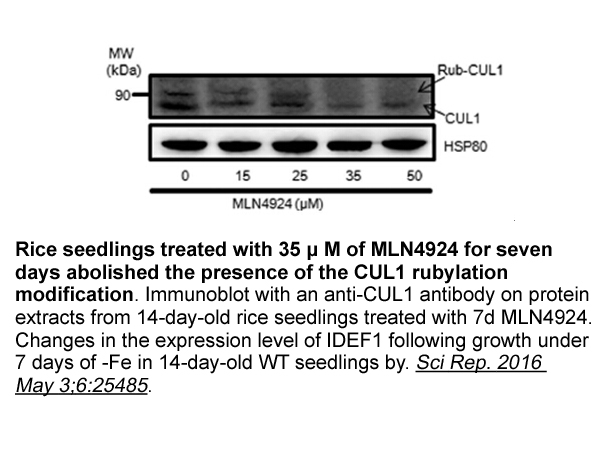Archives
Subgroup analysis by ethnicity Asian and Caucasian populatio
Subgroup analysis by ethnicity (Asian and Caucasian populations) on RASSF1A promoter methylation in NPC compared with non-tumor tissues showed that methylation was associated with an increased risk of NPC in both Asian and Caucasian populations. These results suggest that RASSF1A, with promoter methylation, may be a susceptibility gene for Asians and Caucasians with NPC. We found a slight heterogeneity (P=0.066) and performed a sensitivity analysis to determine the stability of the pooled OR by omitting an individual study (Zhou et al., 2005), control: adjacent tissue samples). The combined OR from the remaining studies was also significant and heterogeneity was dramatically reduced (P=0.971). The main reason for bias in the current result may be contamination of tissue samples adjacent to the nasopharynx by NPC cells. Furthermore, the result of meta-regression analysis was consistent with the sensitivity analysis, suggesting that our analyses are stable and credible.
RASSF1A promoter methylation was not correlated with age in the four studies that analyzed it (Wang et al., 2009; Zhou et al., 2005; Pan et al., 2005; Tong et al., 2002). RASSF1A promoter methylation was not associated with sex in the eight studies that analyzed it (Yang et al., 2015; Tian et al., 2013; Wang et al., 2009; Fendri et al., 2009; Zhou et al., 2005; Pan et al., 2005; Wong et al., 2004; Tong et al., 2002). Our results were consistent, showing no relationship between RASSF1A promoter methylation, age and sex of NPC patients. In a large population (189 NPC patients), Yang et al. (Yang et al., 2015) reported a significant relationship between RASSF1A promoter methylation and clinical stage, distant metastasis, and T classification. The remaining articles, which had small populations, reported no correlation between RASSF1A promoter methylation clinical stage (Tian et al., 2013; Wang et al., 2009; Zhou et al., 2005; Pan et al., 2005; Wong et al., 2004; Tong et al., 2002), distant metastasis (Wang et al., 2009; Fendri et al., 2009; Pan et al., 2005; Tong et al., 2002), and T classification (Pan et al., 2005; Tong et al., 2002). There was a significant relationship between RASSF1A promoter methylation and PD 0332991 node status in 68 patients with NPC (Fendri et al., 2009). However, the remaining papers (<42 NPC patients per study) showed no association between RASSF1A promoter methylation and lymph node status (Wang et al., 2009; Pan et al., 2005; Wong et al., 2004; Tong et al., 2002). The current findings, based on multiple studies, reveal that RASSF1A promoter methylation was correlated with clinical stage, lymph node status, distant metastasis, and T classification. Furthermore, it was notably higher in advanced stage compared with early stage NPC patients, higher in lymph node positive- compared with lymph node negative patients, higher in patients with distant metastasis compared with patients without distant metastasis, and higher in patients with T3–4 classification compared with patients with T1–2 classification. These results suggest that RASSF1A promoter methylation plays an important role in the progression and metastasis of NPC. Thus, RASSF1A promoter methylation may be associated with a poor prognosis for patients with NPC and serve as a potential therapeutic drug target.
This study reveals a significant relationship between RASSF1A promoter methylation and NPC in tissue, brushing and blood samples, indicating that RASSF1A promoter methylation may be a noninvasive biomarker for NPC. Several studies have suggested t hat aberrant DNA methylation of cancer-specific genes (e.g., TSGs) in various types of human samples could be used for noninvasive cancer screening and diagnosis (Ye et al., 2016; Yang et al., 2016; Ma et al., 2015; Renard et al., 2010). Therefore, we investigated whether RASSF1A promoter methylation can serve as a diagnostic biomarker for NPC. The pooled specificity and AUC of RASSF1A promoter methylation were very good in tissue, brushing and blood samples of patients with NPC vs. corresponding non-tumor samples (tissue: specificity=0.99, AUC: 0.98; brushing: specificity=1.00, AUC: 0.94; blood: specificity=0.98, AUC: 0.97>0.9). The combined sensitivity of RASSF1A promoter methylation was higher in the tissue and brushing groups (0.72, 95% CI=0.64–0.80 and 0.56, 95% CI=0.37–0.73, respectively) compared with the blood group, which had a bad value (0.11, 95% CI=0.05–0.25). We also found that the sensitivity and specificity of RASSF1A promoter methylation were better in the tissue (91.2% and 100%, respectively) and brushing samples (75.5% and 97.9%, respectively). These findings suggest that RASSF1A promoter methylation is an effective noninvasive biomarker for the diagnosis of NPC in tissue and brushing samples. In the future, additional well-designed clinical studies with large populations will be necessary to validate the diagnostic potential of RASSF1A promoter methylation for NPC patients, particularly in brushing samples.
hat aberrant DNA methylation of cancer-specific genes (e.g., TSGs) in various types of human samples could be used for noninvasive cancer screening and diagnosis (Ye et al., 2016; Yang et al., 2016; Ma et al., 2015; Renard et al., 2010). Therefore, we investigated whether RASSF1A promoter methylation can serve as a diagnostic biomarker for NPC. The pooled specificity and AUC of RASSF1A promoter methylation were very good in tissue, brushing and blood samples of patients with NPC vs. corresponding non-tumor samples (tissue: specificity=0.99, AUC: 0.98; brushing: specificity=1.00, AUC: 0.94; blood: specificity=0.98, AUC: 0.97>0.9). The combined sensitivity of RASSF1A promoter methylation was higher in the tissue and brushing groups (0.72, 95% CI=0.64–0.80 and 0.56, 95% CI=0.37–0.73, respectively) compared with the blood group, which had a bad value (0.11, 95% CI=0.05–0.25). We also found that the sensitivity and specificity of RASSF1A promoter methylation were better in the tissue (91.2% and 100%, respectively) and brushing samples (75.5% and 97.9%, respectively). These findings suggest that RASSF1A promoter methylation is an effective noninvasive biomarker for the diagnosis of NPC in tissue and brushing samples. In the future, additional well-designed clinical studies with large populations will be necessary to validate the diagnostic potential of RASSF1A promoter methylation for NPC patients, particularly in brushing samples.